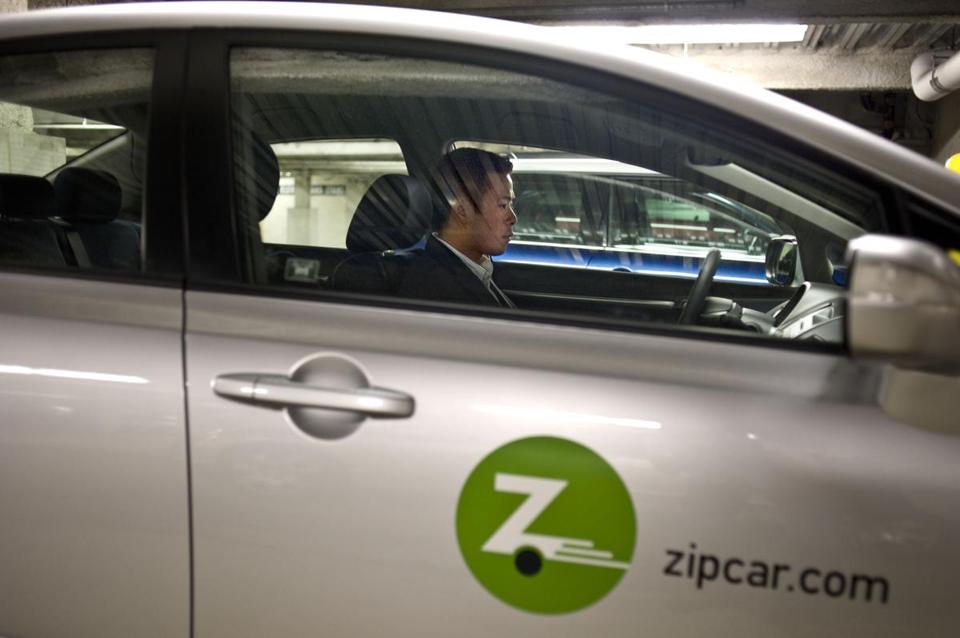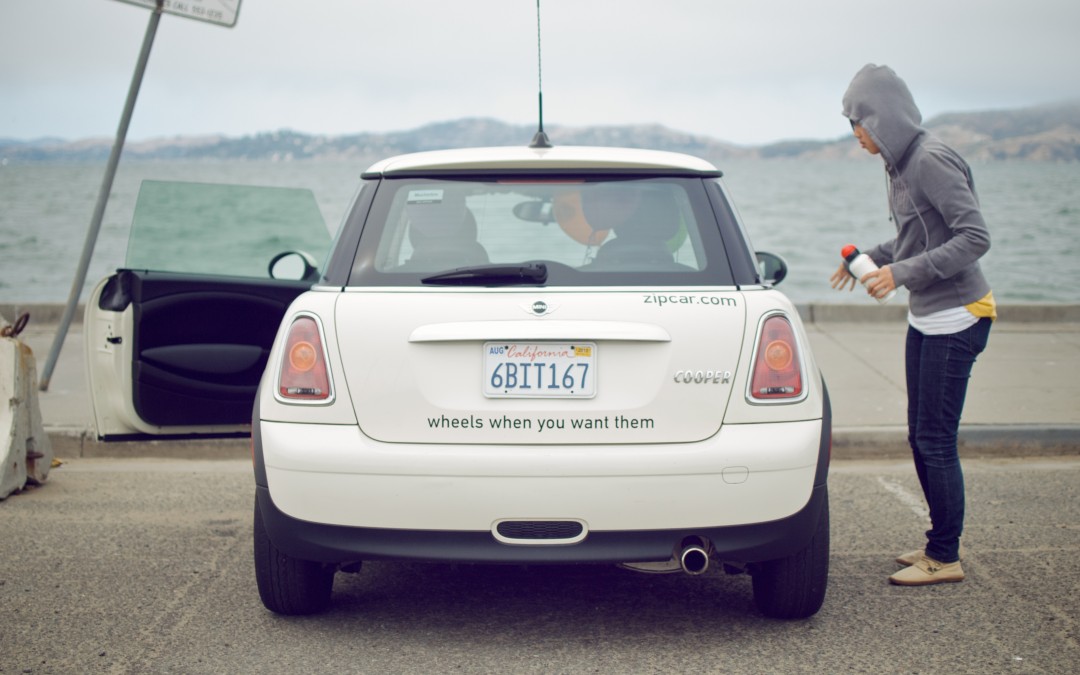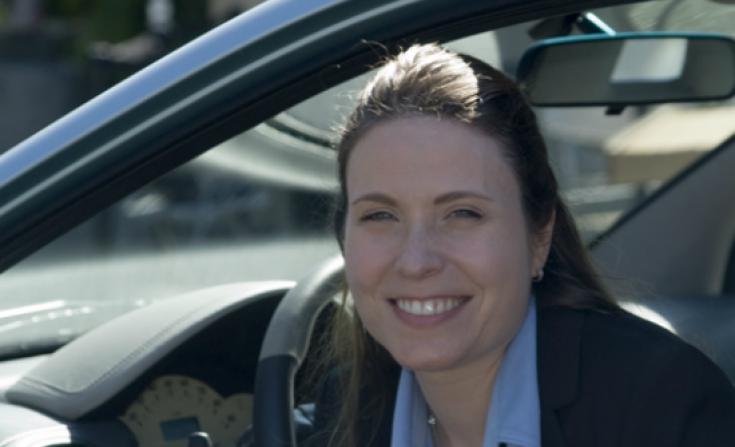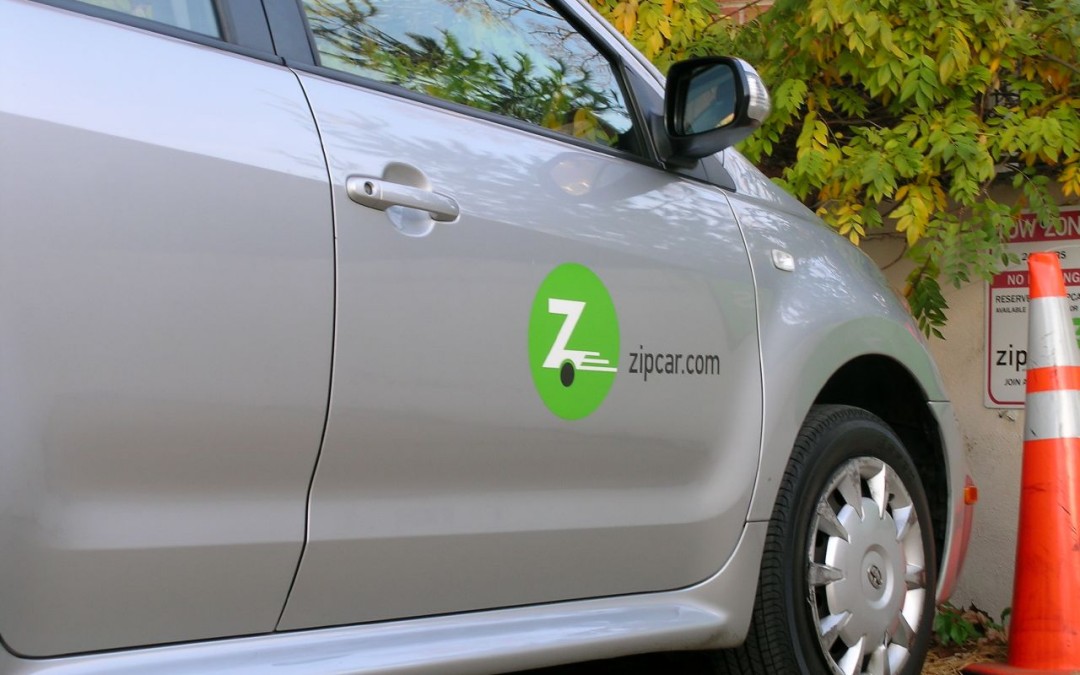
by mattchristensen00 | Feb 3, 2015 |
By John Chesto If you thought parking in Boston was tough now, just wait a few months. The city of Boston is launching a pilot program that could essentially gobble up at least 200 public parking spaces as part of an effort to promote car-sharing and provide more travel options for residents. Companies will bid for the right to park two types of cars in city-owned spaces. Traditional car-sharing services such as Zipcar could bid for specific on-street and municipal lot spaces, where cars would park when not in use. But separately, the program would allow users of so-called free-floating car services — which let drivers pick up and drop off cars in any legal spot — to park in residential spaces and at meters without worrying about getting a ticket or requiring a neighborhood sticker. In Boston — where fighting for a parking spot can turn into a full-contact sport — this approach is sure to raise some eyebrows. Evelyn Addante, a retired transportation planner who lives in Charlestown, said the program will put more cars on the street, without necessarily prompting people to shed their cars. “It’s almost counterintuitive to say this is going to work,” she said. To read the full article, click here....

by Jaelen Loche | Jan 31, 2015 |
By Carolyn Said Living car-free or car-light in San Francisco is increasingly easy — and it’s not just thanks to Uber. Car sharing is quietly spreading throughout the city, allowing people to rent cars by the hour or mile, pick them up at widely dispersed locations, reserve them with a smartphone, and unlock them with a phone or credit card. “Technological advances are giving people new and convenient ways to get around more freely without having to own a car,” said CalPIRG spokeswoman Diane Forte, whose consumer group recently released a report on the growth of high-tech transportation options nationwide. It found that San Francisco is a national leader in innovative ways to get around town, second only to Austin, Texas. To support car sharing — and try to reduce car use — San Francisco is experimenting with reserving up to 900 on-street parking spaces sprinkled throughout the city for the exclusive use of car-sharing vehicles. The three companies getting spaces over the two-year pilot program, which is being phased in slowly, are City CarShare, a nonprofit; Avis’ Zipcar, perhaps the best-known service; and Getaround, a “peer-to-peer” service that helps regular people rent their cars to others. To read the full article, click...

by mattchristensen00 | Oct 16, 2014 |
By Mike McCamish, Director, Greentree Property Management Innovation in apartment ownership and management is not just software or gadgets. It’s about changing how we think about the amenities and services that fulfill the needs of residents and our investment in the properties. Car sharing is one of those innovations, and the apartment industry is seeing significant advantages in its adoption, driven by resident demand and demographic trends. Apartment owners and operators across the country, primarily in urban areas, are making car-sharing services such as Zipcar and CityCarShare available on-site for residents and in some cases, also to the public. A variation on basic car sharing, these car-sharing services first became active in “green”-minded communities such as Portland, Oregon; Austin, Texas; Vancouver, Canada; and San Francisco. Car sharing is a sought-after amenity for renters who do not want the added expense of owning a car but still need a car from time to time. It reduces the number of cars on the road and the auto-emission impact on the environment. Property owners implementing car sharing In San Francisco, Veritas Investments and its affiliates RentSFNow and Greentree Management, which together control one of the largest apartment portfolios in the City’s urban core, have seen such strong reception to a Zipcar pilot efforts two years ago that they expanded the pool to several communities. Now Zipcar’s largest host in San Francisco, the firm has more than 30 Zipcars in properties that can accommodate the parking, security and access requirements, with more underway. Equity Residential in 2011 launched a program to put Zipcars in 30 U.S. properties, and its website now reports Zipcars...

by mattchristensen00 | Oct 14, 2014 |
By Matthias Krause If you’ve attempted to dive deep into the topic of car sharing, chances are you’ve come across Susan Shaheen, or at least some of her studies. About 18 years ago she fell in love with the concept, even though she’d probably never put it that way. The idea of car sharing “resonated” with her, she said, as a Ph.D. student at the University of California at Davis looking for a dissertation topic. She saw a lecture by Michael Glotz-Richter, a German Marshall Fund Fellow from Bremen. She was fascinated by behavioral effects of people joining car sharing, and the resulting benefits for the environment, she recalled from her office at the University of California at Berkeley, home of the Institute of Transportation Studies, where she serves as a co-director of the Transportation Sustainability Research Center. “He essentially showed that 44 percent or 45 percent of vehicle kilometers traveled were declining due to the use of car sharing, and people were selling their cars or not buying cars, somewhere around 7 to 15 I think the numbers were,” Shaheen said. The reductions in energy use and CO2 emissions were notable, achieved by people changing their behavior. “I had been working on this idea of the station car that goes to and from the transit station. Is there a way that those vehicles could be shared and we could bring the concept of car sharing to the U.S.? And I was really deeply interested, and studying this by actually demonstrating it, putting a real project on the ground and seeing if we could get people to behave differently, and...

by mattchristensen00 | Sep 11, 2014 |
Urban Mobility is Hitting its Stride Few people know more about urban mobility than Susan Shaheen. The Cal-Berkeley professor of transportation engineering is one of the nation’s preeminent researchers of bike sharing, car sharing, and smart parking. Real Business caught up with Shaheen at ITS to chat about how modern cities are evolving. How has urban mobility come along over the past decade? Shaheen: We’re moving into an era of smart cities where [planners] are thinking about how to move people more efficiently throughout cities through classic public transit, like buses and rail, but also other forms of mobility that are new, like bike sharing and car sharing. There’s a growing emphasis on quality of life, and we’re trying to figure out how people can live densely but also increase their life quality. And we’re also seeing people gravitating more toward urban living. The smartphone has been a player in all of this, as has the economic recession of 2008 an 2009. How are millennials impacting this change? Shaheen: Auto sales are not as high among younger adults and millennials as we’d seen previously. There’s a desire among millennial populations to multitask. They want to be connected all the time and they’re not as interested in driving. Being connected also means riding in a public transit vehicle. So we’re seeing people wanting an urban lifestyle and trying to figure out how to make that work, even with families. To read the entire article, click...






